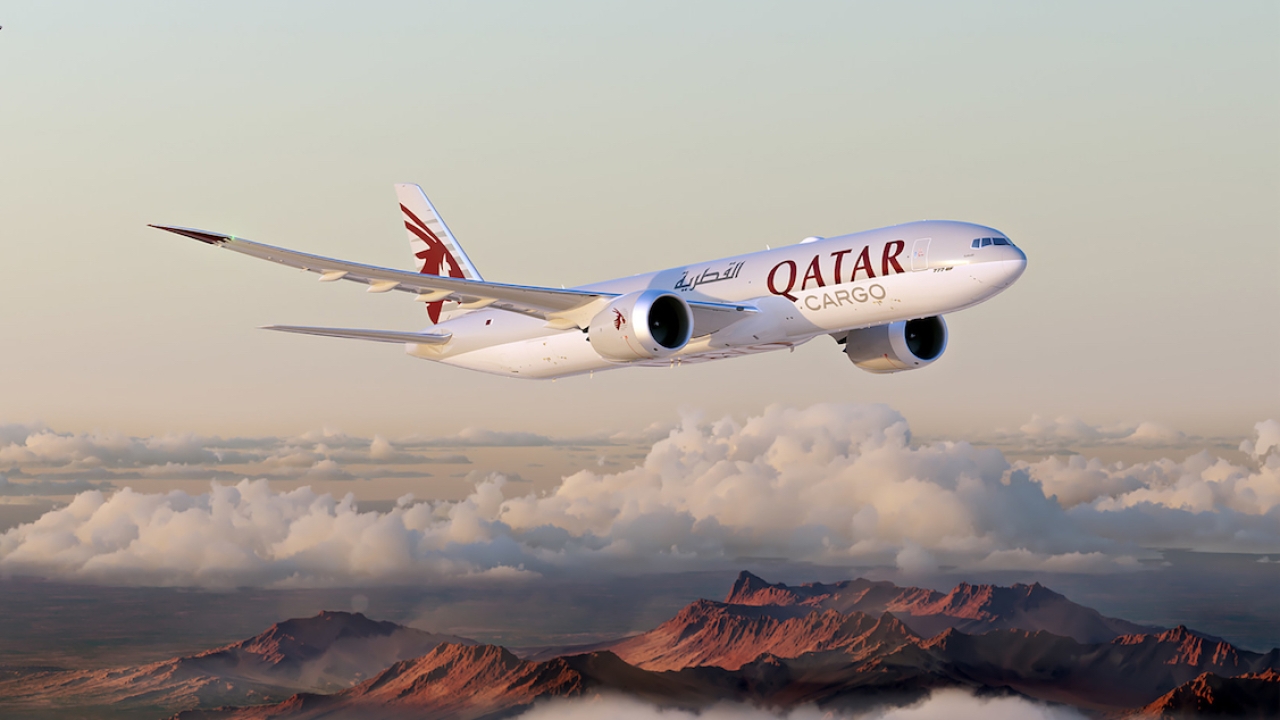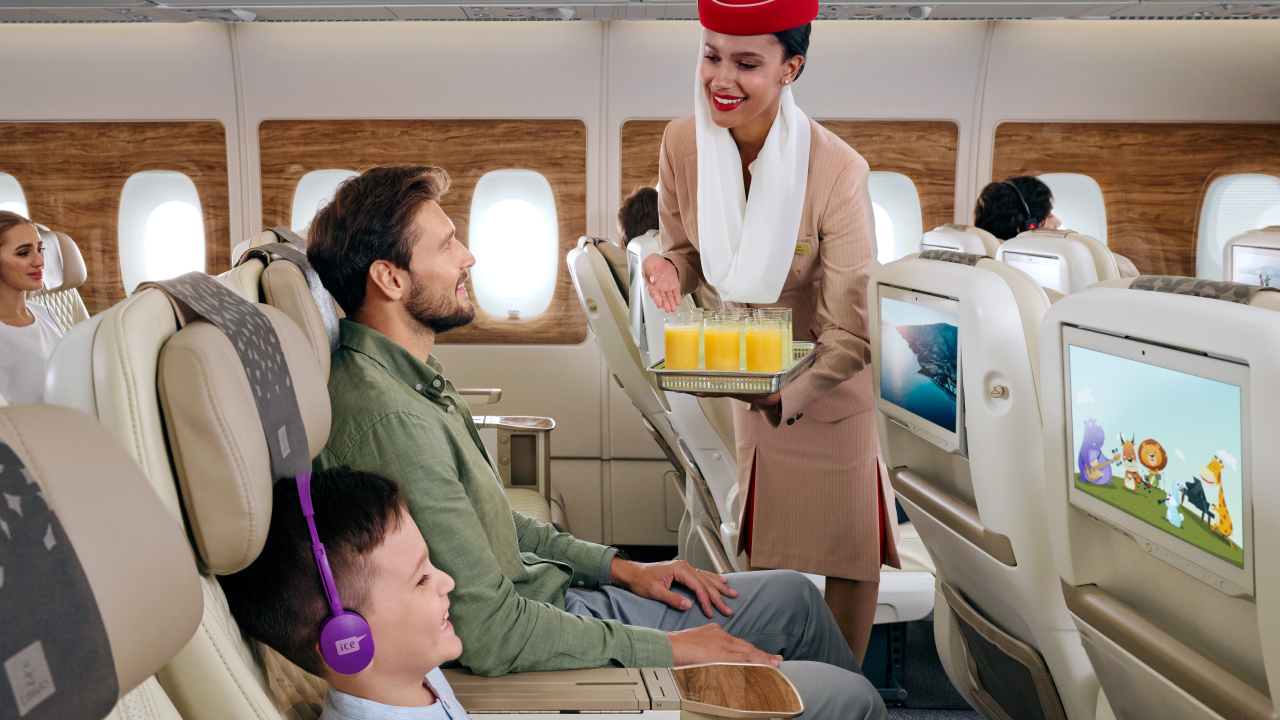Charge of the freight brigade...
Air cargo operations have become more important for airlines than even before. Alan Peaford reports on how Gulf carriers have helped boost fleets by funding the launch of two new freighter options from the leading airframers.

Mega order: Qatar has opted for Boeing’s new 777-8F. Image: Boeing.
Air freight really came into its own with the onset of the Covid pandemic.
With traditional air transport passenger markets collapsing, so airlines saw cargo demand rise exponentially as the world sheltered and e-commerce boomed, with orders for medical equipment and other goods reaching levels never seen before.
Airlines took short-term measures to temporarily convert passenger aircraft to freighters, with passenger cabins adapted to take parcels and regulators fast-tracking approvals.
Forecasts that the e-commerce figures would continue to grow after the world got back to normal saw both airlines and manufacturers looking at how they could step up the options to meet the new demands.
With increased long-term contracts with freight forwarders, the airlines now have more confidence in investing in the market.
Unsurprisingly, it was Gulf carriers that led the charge. Many of the new models of aircraft at the larger end of the market have seen Gulf carriers as the launch customers. Now, both Boeing and Airbus have announced their latest models, with Qatar Airways and Etihad, respectively, being the first to confirm orders to give the go-ahead for the development of the aircraft.
Etihad joined Singapore Airlines in expressing its intent to each purchase seven A350Fs, paving the way for Airbus to begin building the cargo variant of its latest wide-body jet.
Tony Douglas, group CEO of Etihad, described the A350 as a “remarkable” aircraft.
“As our cargo operations continue to overperform and we work towards a more sustainable future built upon the world’s youngest and most fuel-efficient fleet, the addition of the A350F will play a key role in driving our long-term cargo strategy and achieving our 2035 target to reduce CO2 emissions,” he said.
The Abu Dhabi airline then saw its neighbours in Doha, Qatar Airways, go public with its order from Boeing to launch the 777-8 Freighter variant. This gave the American manufacturer its largest freighter commitment in history by value with a firm order for 34 jets and options for 16 more, a total purchase that would be worth more than $20 billion at current list prices.
Featuring advanced technology from the new 777X family and the proven performance of the market-leading 777 Freighter, the 777-8 Freighter will be the largest, longest-range and most capable twin-engine cargo aircraft in the industry.
With payload capacity nearly identical to the 747-400 Freighter and a 25% improvement in fuel efficiency, emissions and operating costs, the 777-8 Freighter will enable a more sustainable and profitable business for operators, Boeing said in a statement.
Qatar also ordered two of the current 777 freighters to capitalise on the buoyant cargo market.
Sustainability is vital for both carriers. The Boeing aircraft features the GE9X engine, and introduces the latest generations of heat-resistant ceramic matrix composites materials, additively manufactured parts and lean-burn combustion that help improve fuel efficiency.
The world’s most powerful and fuel-efficient turbofan, the GE9X offers the lowest NOx emissions in its class and is the quietest GE engine ever produced, as well as being sustainable aviation fuel (SAF) ready.
Airbus is pitching its wide-body against the successful Boeing 777F, offering at least 3t of additional payload and 11% more volume – and is also eyeing 747 freighter operators, claiming it offers the same volume jumbo.
The A350 has a 30t lighter operating weight when empty, compared with its nearest rival, as well as the capability to load both decks simultaneously.
Airbus claims the aircraft will be the only freighter capable of meeting new International Civil Aviation Organization (ICAO) emissions requirements from 2028. It will have a 40% lower fuel-burn than a 747F.
Powered by Rolls-Royce Trent XWB engines, the aircraft will have 99% airframe compatibility – and full engine compatibility – with the passenger A350, and share its type rating.
Stay up to date
Subscribe to the free Times Aerospace newsletter and receive the latest content every week. We'll never share your email address.


